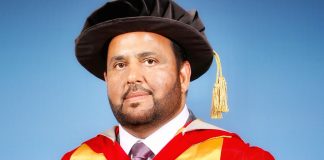As Ramadan, the holiest month in the Islamic calendar, concludes, Muslims across the UK and around the world prepare to celebrate Eid-ul-Fitr, the “Festival of Breaking the Fast.” However, each year, a familiar debate resurfaces—why do British Muslims observe Eid on different days?
The answer lies in two distinct methods used to determine the date of Eid. Some Muslims rely on local moon sightings, while others follow the announcement from Mecca, celebrating Eid on the same day as Saudi Arabia. This difference has sparked ongoing discussions, raising fundamental questions: Why isn’t there a unified approach? Does this division contradict Islamic teachings? And ultimately, which method is correct?
Islam follows a lunar calendar, with the start of each month marked by the sighting of the crescent moon. This principle applies to both Ramadan and Eid, as emphasised in the words of Prophet Muhammad (PBUH):“When you see the new moon, begin fasting; when you see the next new moon, break your fast.”
Due to the lunar cycle, Eid shifts by approximately eleven days each year in the Gregorian calendar.
According to Islamic tradition, Eid should be observed upon the sighting of the new moon—either locally or in the nearest Muslim country, which for the UK is Morocco. However, differing interpretations of this practice mean some British Muslims follow local moon sightings, while others adhere to Saudi Arabia’s announcement. Those who follow Mecca consider it the spiritual centre of the Islamic world and believe its moon sighting holds the most authority. Others argue for maintaining the historical practice of regional moon sightings, which was common during the Prophet’s time.
Despite common misconceptions, this divide is not necessarily linked to Islamic schools of thought such as Shafi, Hanbali, Maliki, or Hanafi. Muslims from various backgrounds adopt either approach based on personal or community preferences. Historically, in the time of Prophet Muhammad (PBUH), communication between cities was slow, meaning each region relied on its own moon sighting. Today, with global connectivity, some scholars advocate for a universal moon sighting to unify Muslims worldwide, while others stress the importance of preserving traditional, locally observed practices.
The question of Eid’s exact date is unlikely to be resolved conclusively. While some push for global uniformity, others emphasise the need to maintain historical traditions. However, these differences should not divide the Muslim community.
Regardless of how Eid is determined, its core essence remains the same—a celebration of faith, devotion, and unity. What truly matters is that Muslims come together within their local communities, fostering harmony and togetherness in marking this joyous occasion.
Eid Mubarak!




